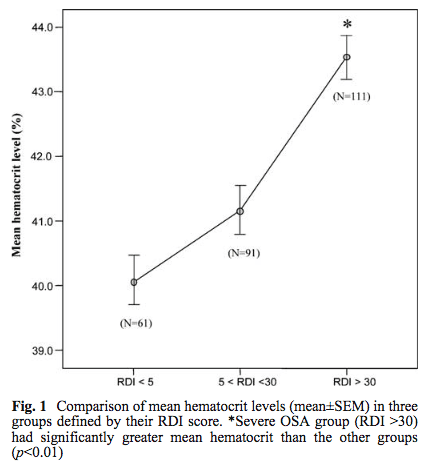Dan W
Member
- Joined
- Jan 22, 2013
- Messages
- 1,528
I thought this clinical review (full text) was interesting, concluding that IL-6 levels could be a good indicator for discriminating between people with and without obstructive sleep apnea.
Of more-commonly-tested markers, I noticed that CRP and hematocrit might also be good clues, although with a higher chance than IL-6 of being caused by other issues. Hematocrit could be particularly misleading to us Peat-folk that live at high altitude so that we can look down on others. But at a given altitude, the hematocrit clue seems to be pretty clear (from this study):

Of more-commonly-tested markers, I noticed that CRP and hematocrit might also be good clues, although with a higher chance than IL-6 of being caused by other issues. Hematocrit could be particularly misleading to us Peat-folk that live at high altitude so that we can look down on others. But at a given altitude, the hematocrit clue seems to be pretty clear (from this study):

